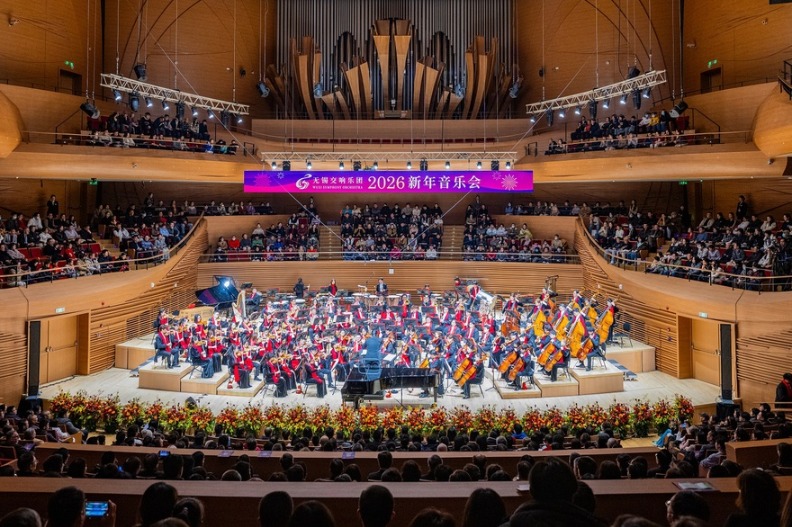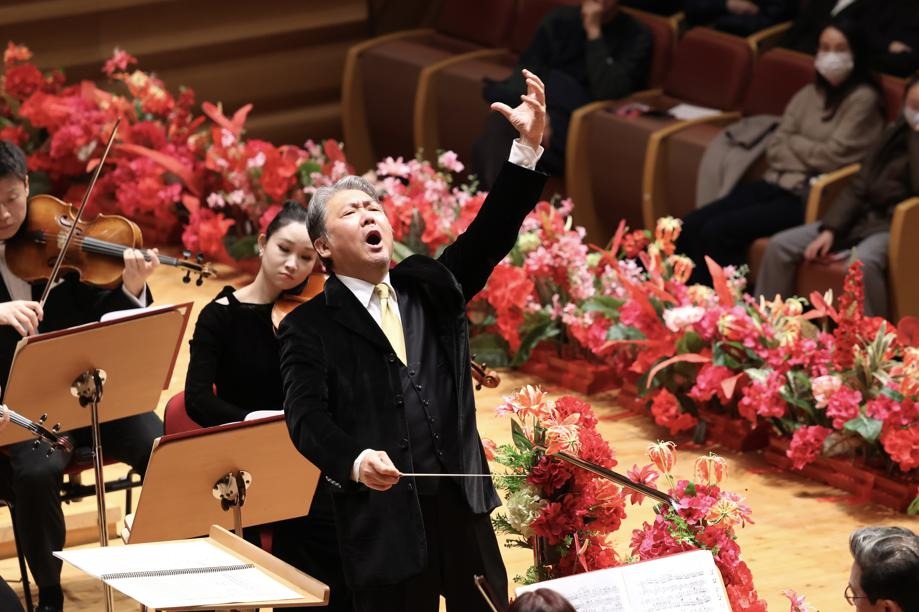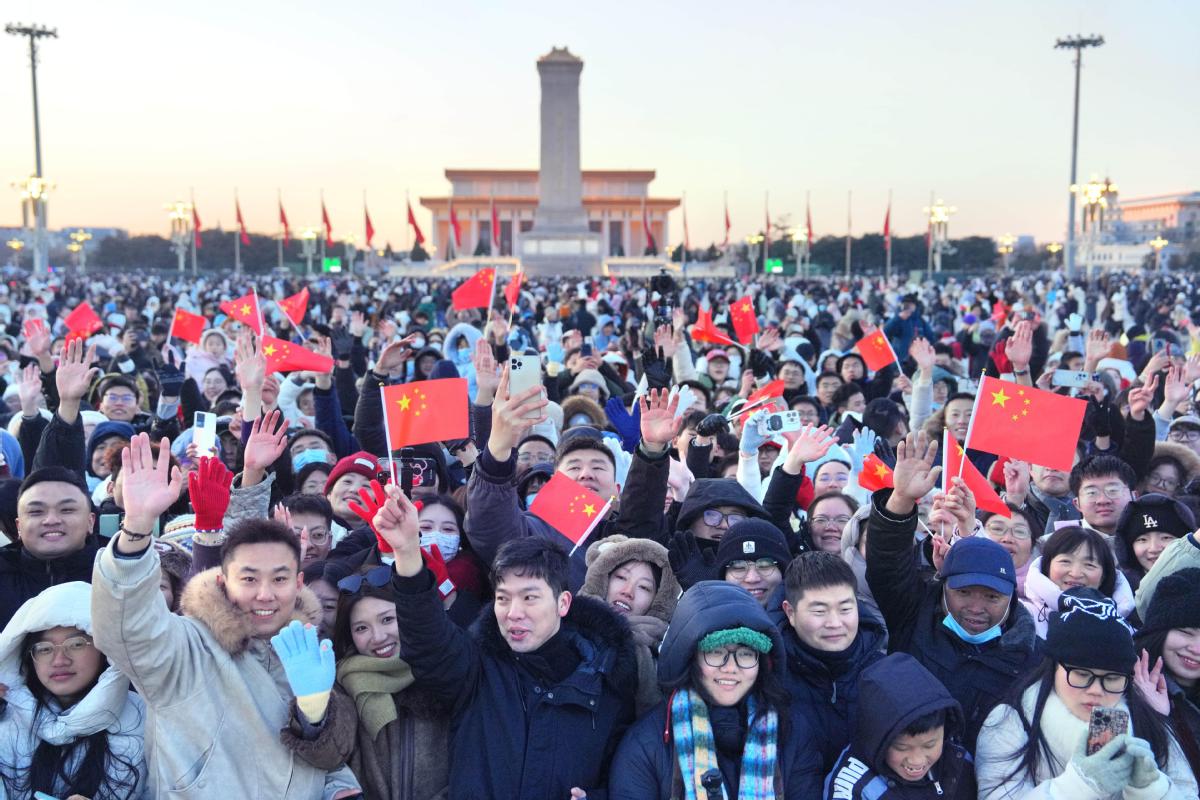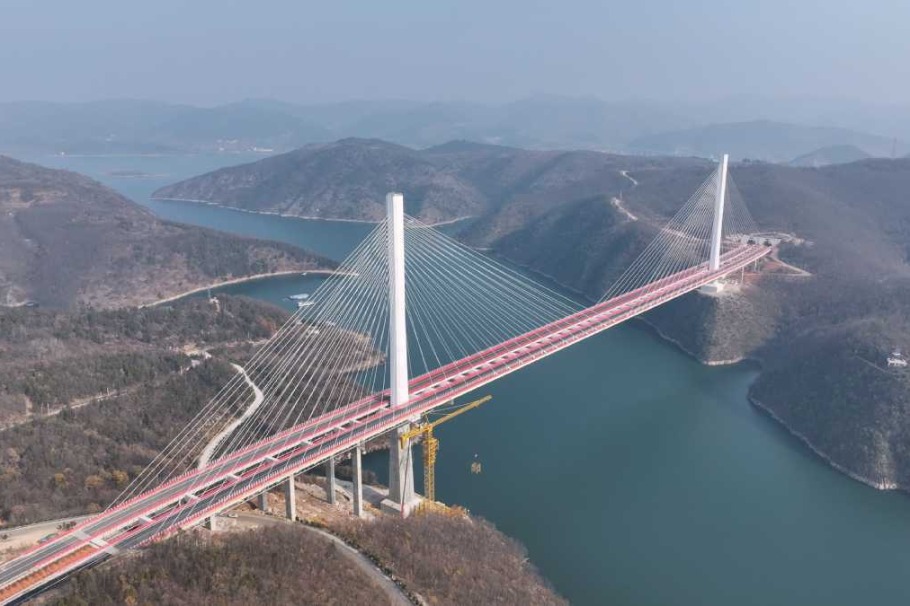From food security to carbon goals, 'two sessions' demonstrate China's steady steps toward modernization

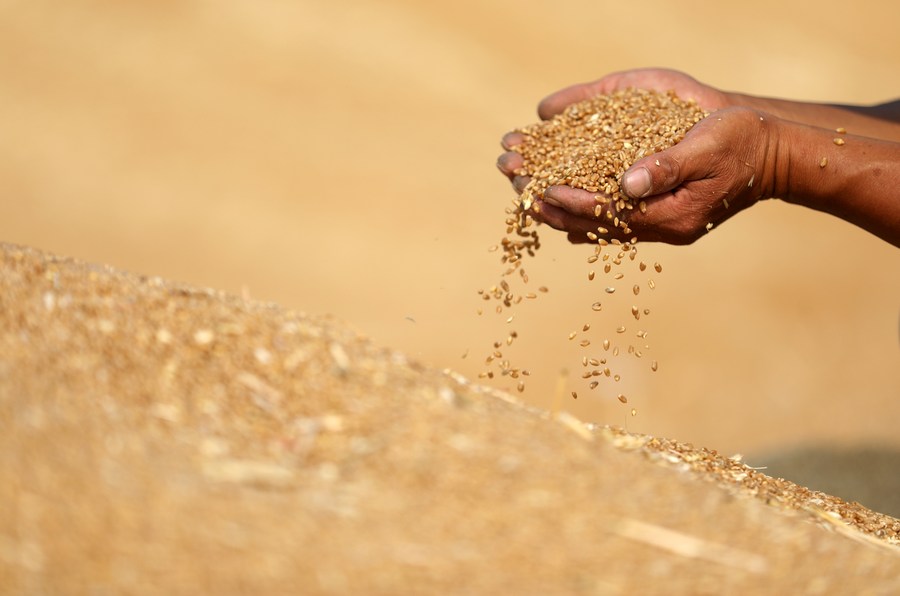
BEIJING -- In 1995, a book titled "Who Will Feed China?" speculated, "In an integrated world economy, China's rising food prices will become the world's rising food prices. China's land scarcity will become everyone's land scarcity."
A "powerful answer" has been delivered. "Today, China's 1.4 billion people are eating well with a great range of choices," Xi Jinping, general secretary of the Central Committee of the Communist Party of China (CPC), said during the fifth session of the 13th National Committee of the Chinese People's Political Consultative Conference.
"Through enormous efforts, China is capable of feeding one-fifth of the global population with 9 percent of the world's arable land and 6 percent of the freshwater resources," said Xi, also Chinese president and chairman of the Central Military Commission.
That China feeds itself well is but one anecdote of what has been dubbed the great rejuvenation of the Chinese nation, which is first and foremost about the people.
FOR THE PEOPLE
"Of all things, eating matters most, and food is the most basic necessity of the people," Xi said, stressing that despite China's industrialization, food supply should never be considered an insignificant issue.
"How many days has it been since hunger is behind the Chinese people? Probably just the kids born after the 1980s," he added, evoking not-so-distant memories and wide agreements at the fifth sessions of the 13th National People's Congress (NPC) and the 13th CPPCC National Committee, also dubbed the "two sessions."
Since the 18th National Congress of the CPC in 2012, Xi has attended 10 annual "two sessions," where the "people" stood out as his most frequently used word.
Yeshe Dawa, a national political advisor from southwest China's Sichuan Province, brought two photos to Xi depicting staggering changes of a village on a cliff at an elevation of 1,700 meters in his hometown.
Xi carefully looked at the photographs -- one showing a ramshackle rattan and wooden ladder as the only access to Atulieer Village, and the other depicting a renovated steel ladder that is imposing and strong.
"Have the villagers moved down the hills to their new homes? How about children and the elderly?" Xi asked.
"Some moved down and some stayed in the village, which is now a popular tourist destination. People's lives are getting better," Yeshe Dawa replied.
Over the last 10 years, Xi has joined national lawmakers and political advisors in group discussions on 53 occasions at such annual sessions.
The topics ranged from poverty reduction to equal access to education, epidemic control, rural revitalization, common prosperity and food security, among others.
"When it comes to the wellbeing of the public, there is no such thing as a trivial matter," Xi said this year. "We must give extra attention and care to the people in difficulty, to help them resolve problems. We should further reform the social assistance system, and work for a comprehensive, effective, multi-tiered, and multi-category social assistance framework centered on basic living assistance, special assistance, and emergency assistance."
PEOPLE'S DEMOCRACY
Xi and other Chinese leaders joining NPC deputies and CPPCC National Committee members for extensive exchanges and discussions on important matters of national development and public interest is one of the features of socialist democracy with Chinese characteristics.
Among the issues raised by the NPC deputies and CPPCC National Committee members at the "two sessions" are "building a nationwide, unified health code," a digital technology registration tool that has become an everyday occurrence in the lives of people in China since the COVID-19 pandemic began. Proponents say the various codes in use across the country create inconveniences and confusion. Raising the threshold of personal income tax and slashing the medical insurance payment by rural people above 60 years old were among other important topics at the "two sessions."
As always, one highlight of the annual sessions was the report on the work of the government. Thousands of opinions and suggestions were solicited via multiple channels from all walks of life.
As of the end of 2020, China had 2.62 million deputies to people's congresses at all five levels. Of the total, 94.5 percent were from the county and township levels, all directly elected on a one-person-one-vote basis. Deputies to people's congresses at the city, provincial and national levels are elected by people's congresses at the next level below. China's whole-process people's democracy, which covers elections, consultations, decision-making, management, and oversight, ensures that it is the people who are running the country.
SEEKING STABLE PROGRESS
The annual sessions also speak volumes about China's general principle of maintaining stability while pursuing progress of the economy.
For example, China has pledged to peak carbon emissions before 2030 and achieve carbon neutrality before 2060.
Southwest China's Tibet is working to develop itself into a national clean energy base. By 2020, clean energy had contributed 89.1 percent of the total installed capacity of power generation in the autonomous region.
"We will take proactive and prudent steps to advance carbon emissions peaking and carbon neutrality initiatives," Xi said. "When carrying out carbon reductions, we must also ensure the security of energy, food, and industrial and supply chains, as well as the normal life and work of our people. We must not distance ourselves from realities and rush for quick results."
As the world is grappling with the COVID-19 pandemic and other challenges unseen in a century, China seeks stable progress amid all headwinds.
On the current situation in Ukraine, Premier Li Keqiang said at a press conference at the end of the NPC session on Friday that China is deeply concerned and grieved. "We sincerely hope that the situation will ease and peace will return at an early date."
On the vital China-U.S. relations, Li said, "We hope that the two countries will properly manage differences in a rational and constructive manner and respect each other's core interests and major concerns. There should be more dialogues and communication. Now that the door has been opened, it shouldn't be shut again, nor should there be decoupling."
"I can tell you very clearly that no matter how the international environment may change, China will keep to the course of wider openness. Just as the course of the Yangtze and Yellow rivers will not be reversed," Li added.
- Tianjin University unveils initiative aimed at developing innovative leaders
- Nanjing Massacre survivors decreases to 23
- China rebuffs criticism over drills around Taiwan
- Mainland pledges deeper cross-Strait integration in 2026 message
- Wuxi marks New Year with cross-cultural symphonic celebration
- Smart trip aid goes live
















